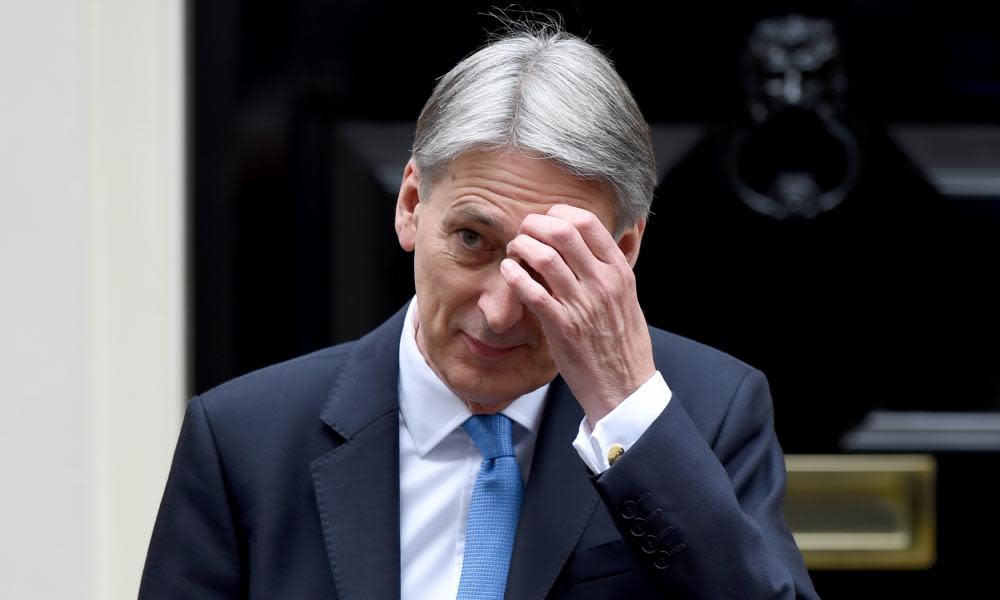The real budget story is the sharp cut in growth forecasts | Larry Elliott

Forget the extra money for housing. Put to one side the package of support for the NHS. Ignore the willingness to throw money at sorting out universal credit. The real story from the budget was slower growth not just this year but every year up until 2022.
This downgrade has been a long time in coming. Ever since it was founded, the independent Office for Budget Responsibility has wrongly predicted a pick-up in productivity growth and is now heartily sick of ending up with egg on its face.
So it has now pencilled in productivity growth of just 1.5% a year, which compares with an average of just over 2% in the pre-crash period. Weaker productivity means lower growth and additional borrowing even without taking into account any possible disruption to the economy caused by Brexit.
Philip Hammond could have responded to the OBR’s gloomier forecasts by hunkering down. Instead, he has done the opposite. He has decided to increase spending and borrowing to see the economy through what is expected to be a rocky period when the UK leaves the EU in 2019.
The chancellor has managed to do this by once again pushing back the date by which Britain’s public finances will be back in the black. In the dim and distant days of 2010, George Osborne promised he could get on top of the UK’s budget deficit in one five-year parliamentary term. That soon became two parliaments and now, it would appear, the earliest date for budget balance will be the middle of the next decade.
Hammond has also deployed some creative accountancy to deliver a fall in the national debt – the sum of all the UK’s budget deficits – as a share of economic output. In order to ensure the ratio falls in every year, the chancellor is planning to sell shares in RBS and take housing association debt off the government’s balance sheet.
Even so, debt will remain at double its level before the financial crisis, rather too high for comfort were the UK to plunge back into recession over the coming years. It is worth noting that there has been a recession in every decade since the 1970s.
As for the measures themselves, the cut in business rates was welcome, as was the increased generosity of the research and development tax credit. But the impact of abolishing stamp duty for first-time buyers, as the OBR noted, will give an added twist to house prices, the exact opposite of what is needed.
But this, at root, was a budget framed by three interlocking factors: the political weakness of the government; the detrimental long-term impact of the financial crisis; and the imminence of Brexit.
•Follow Guardian Business on Twitter at @BusinessDesk, or sign up to the daily Business Today email here.

 Yahoo News
Yahoo News 
